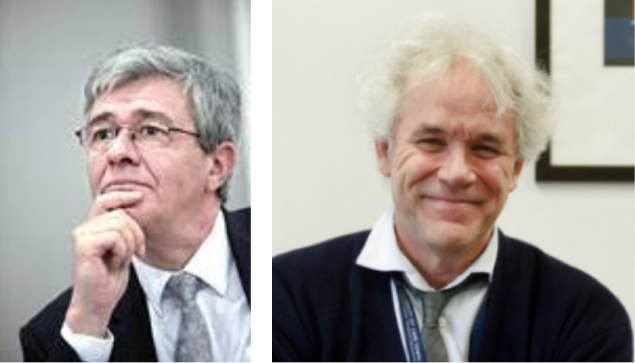Follow-up Q&A session with Karl Friston and Mark Solms
Towards engineering an artificial consciousness
Professors
Karl Friston and Mark Solms
 Saturday, 8 March 2025
Saturday, 8 March 2025
11 a.m. (EST- Eastern USA)
Please click here to view the recording of this event.
Start time in selected time zones
 This webinar will be approximately two hours long.
This webinar will be approximately two hours long.
This is a follow-up webinar to the one held with Professor Friston and Professor Solms on the 23rd of November 2024. During this webinar Professor Friston and Professor Solms will address the questions that were posed by the audience during the previous webinar. They will also continue their dialogue with each other and will also answer additional questions from the audience.
Click here to watch the recording of the previous webinar with Professor Friston and Professor Solms that was held on the 23rd of November 2024.
Relevant papers
Joffily M, & Coricelli G. (2013). Emotional valence and the free-energy principle. PLoS Comput Biol.,9(6):e1003094.
https://doi.org/10.1371/journal.pcbi.1003094
Lars Sandved-Smith, Casper Hesp, Jérémie Mattout, Karl Friston, Antoine Lutz, Maxwell J D Ramstead. (2021). Towards a computational phenomenology of mental action: modelling meta-awareness and attentional control with deep parametric active inference. Neuroscience of Consciousness, Volume 2021, Issue 1, niab018.
https://doi.org/10.1093/nc/niab018
Ramstead, M. J., Albarracin, M., Kiefer, A., Klein, B., Fields, C., Friston, K., & Safron, A. (2023, April 20). The inner screen model of consciousness: applying the free energy principle directly to the study of conscious experience.
https://doi.org/10.31234/osf.io/6afs3
Bios
Karl Friston is a theoretical neuroscientist and authority on brain imaging. He invented statistical parametric mapping (SPM), voxel-based morphometry (VBM) and dynamic causal modelling (DCM). These contributions were motivated by schizophrenia research and theoretical studies of value-learning, formulated as the dysconnection hypothesis of schizophrenia. Mathematical contributions include variational Laplacian procedures and generalized filtering for hierarchical Bayesian model inversion. Friston currently works on models of functional integration in the human brain and the principles that underlie neuronal interactions. His main contribution to theoretical neurobiology is a free-energy principle for action and perception (active inference). Friston received the first Young Investigators Award in Human Brain Mapping (1996) and was elected a Fellow of the Academy of Medical Sciences (1999). In 2000 he was President of the international Organization of Human Brain Mapping. In 2003 he was awarded the Minerva Golden Brain Award and was elected a Fellow of the Royal Society in 2006. In 2008 he received a Medal, College de France and an Honorary Doctorate from the University of York in 2011. He became of Fellow of the Royal Society of Biology in 2012, received the Weldon Memorial prize and Medal in 2013 for contributions to mathematical biology and was elected as a member of EMBO (excellence in the life sciences) in 2014 and the Academia Europaea in (2015). He was the 2016 recipient of the Charles Branch Award for unparalleled breakthroughs in Brain Research and the Glass Brain Award, a lifetime achievement award in the field of human brain mapping. He holds Honorary Doctorates from the Universities of York, Zurich and Radboud University.
Mark Solms, Ph.D., is the Co-Chair (with Cristina Alberini) of the International Neuropsychoanalysis Society. He is a member of the British Psychoanalytical Society, and the South African and American Psychoanalytic Associations. He is also Science Director of APsaA. He coined the word ‘neuropsychoanalysis’ in 1998, and has been a major contributor to the development of this field. He is a Full Professor and the Director of Neuropsychology at the Neuroscience Institute of the University of Cape Town, South Africa.
CPD credits: 2
(Please click here for further information regarding CPD credits.)